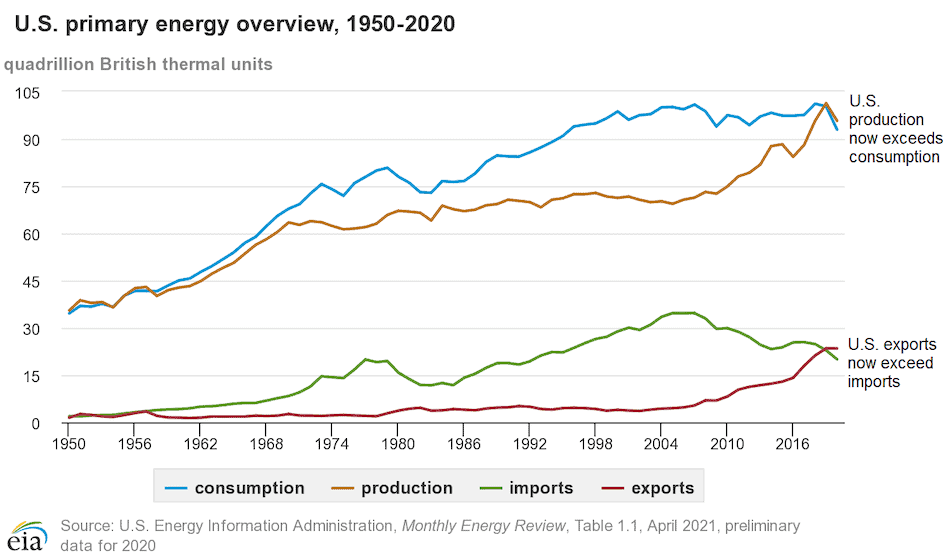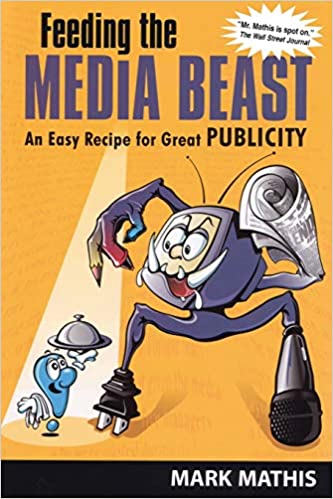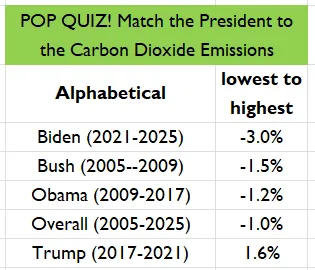If the delusional idea of banning hydraulic fracturing continues to spread, there will be widespread economic destruction and a loss of national security.
Do the activists and politicians even care?@TomHarrisICSC https://t.co/WumEdOTilK via @MalcolmOutLoud
— Mark Mathis (@TheMarkMathis) June 16, 2021
by Dr. Jay Lehr and Tom Harris
The amazing technology of hydraulic fracturing, also known as “fracking,” has been a huge benefit to the United States and, indeed, the whole world. It has boosted employment, kept energy prices relatively low, and largely as a result of the hydraulic fracturing revolution, America became the world’s largest oil producer. Better yet, in 2019 and 2020, for the first time since 1952, hydraulic fracturing helped the U.S became a net total energy exporter, thereby making a major contribution to our national security.

Isaac Orr, Policy Fellow for Energy and Environment at the Center of the American Experiment, explained in March 2020:
“The 3.9 million jobs currently supported by fracking take the form of direct jobs in the extraction industry, indirect jobs in the supply chain, and induced jobs [in] local hardware stores, restaurants, car dealerships, and bakeries.”
Dr. David Wojick, an independent analyst, working at the intersection of science, technology, and policy, outlined the impact of hydraulic fracturing on energy prices:
“Before fracking, wholesale gas was always around $7.50 a million BTU. Fracking cut that way down…Henry Hub price is $3.30, which is typical of the fracking-based price. A ban [on hydraulic fracturing] would take us back, or worse, since cheap gas has taken over electricity generation. The adverse economic impact would be huge.” *
Considering the important contributions made by hydraulic fracturing, it should concern everyone that the worldwide movement to ban this beneficial technology is gaining momentum.
A resolution has now been signed by over 600 grassroots groups, organizations, and scientists, which states the following:
“We, the undersigned, support a call for a global ban on fracking being proposed by Ireland at the United Nations General Assembly on climate-mitigation, public-health, environmental-protection, and human-rights grounds.”
Ireland has been singled out to lead this effort against hydraulic fracturing because it:
- banned the practice on its own soil since 2017;
- last month become one of the few countries in the world to impose a moratorium on imported natural gas derived from hydraulic fracturing, pending a completed energy security review (see the Irish government’s just-published Liquified Natural Gas (LNG) policy statement);
- has a newly assumed role on the United Nations Security Council.
Demand for an Irish-led global ban on hydraulic fracturing is mounting in the wake of the May 24th report “International Human Rights Impacts of Fracking” issued by the Irish Centre for Human Rights (ICHR). The Green News (supported by the Irish Environmental Network) reported:
“According to the ICHR document, unconventional oil and gas exploration impacts several rights, including the right to life, health, water, food, housing, access to information, and the right to a safe, clean and healthy environment. These violations disproportionately impact individuals and communities from marginalized backgrounds such as children living in poverty, ….”
This makes no sense, of course. Hydraulic fracturing has proven to be very safe in numerous jurisdictions over many decades. Yet many governments are bowing to uninformed activists and political correctness and banning this important technology. Tunisia and France have banned the practice completely, and several Canadian provinces, New Brunswick, Newfoundland, Nova Scotia, and Quebec, have province-wide bans on hydraulic fracturing.
Even within the United States, several jurisdictions have outlawed the use of this technology. It started with Vermont, which, in May 2012, became the first state to ban hydraulic fracturing even though it has no known gas reserves that can be retrieved by this method. New York state followed suit and imposed their ban in December 2014. In 2017, Maryland also outlawed hydraulic fracturing for two and a half years, and committed to new regulations after the ban lifts. In 2019 Washington state banned hydraulic fracturing, although, like Vermont, it had no hydraulic fracturing when the bill was passed.
More worrisome are two recent U.S. developments:
- On April 23rd, California Gov. Gavin Newsom used his state’s environmental regulatory authority to ban new permits for hydraulic fracturing starting in 2024. Also, according to the Los Angeles Times, “Newsom called on regulators to evaluate phasing out all oil production in the state by 2045.”
- On February 25th of this year, the Delaware River’s regulatory agency and its tributaries voted to permanently ban natural gas drilling and fracking within the entire 13,539-square-mile area four-state watershed. Not surprisingly, environmental activists praised the decision, with the Sierra Club calling it a “historic watershed moment and one that will significantly contribute to a clean energy future.”
This mistake has huge significance for America’s energy security as the seven Pennsylvania counties within the Delaware River Basin contain the Marcellus Shale rock formation, which contains literally trillions of cubic feet of natural gas. Gene Barr, President, and CEO of the Pennsylvania Chamber of Business and Industry, summed up the problem this presents clearly when he told Associated Press,
“It is quite clear the region and nation rely heavily on Pennsylvania’s resources to keep the lights on, and we must oppose any efforts to restrict the production and transmission of our natural resources.”
We need to take a step back and consider why we need these energy sources and what is being done to sabotage them.
Energy allows us to do everything we do, and oil is central to all of it. A clever film clip was made to show this in which, wherever a person went through his day, everything they touched that was partially made with oil byproducts simply disappeared. It quickly brought home the absurdity of our government desiring to eliminate petroleum in our lives. After all, while most people only think of oil as gasoline in your car’s tank, it is also the gas cap, the electric wiring, the tires, most of the interior, the paint, and the lights. Just about everything except the metal components is petroleum-based. The same can be said for almost everything else you use in your daily life.
The mainstream media constantly speak about oil and natural gas as if they are evil influences that are causing a “climate crisis.” If you object to this characterization, you are called a “denier.” The not-so-subtle suggestion equating skeptics of climate alarmism to “Holocaust Deniers” is intentional. But it is not just the word “denier” that is badly misused. So are many, if not most, of the words used in the debate over fossil fuel energy.
It appears that everyone who opposes fossil fuel is a good “environmentalist,” and all who favor it are shills for “Big Oil.” Even that term is wrong. Most of today’s oil and natural gas is produced by large, state-owned companies in nations such as Russian, Iran, and China. The second-largest category of producers could be called “little oil.” Hundreds of these small companies extract oil and gas through hydraulic fracturing and horizontal drilling, producing more than majors like ExxonMobil and Shell.
The fossil fuel opposition hates oil and natural gas for the “carbon” these energy sources produce when burned. The activists purposely shorthand “carbon dioxide” to “carbon,” knowing that the average person will confuse the colorless, odorless gas with an image of black carbon soot. Of course, CO2 leaves our bodies every few seconds as we exhale, and this essential gas supports all plant life on Earth. We are told that 97% of all scientists believe this “carbon” is heating the earth to unsustainable levels. As explained by Tom Harris, the junior author of this article, this, too, is deceptive and, in the final analysis, pure fiction.
The worst place where language and energy really face off is on the topic of “fracking.” The global warming alarmists latched onto this shorthand term for “hydraulic fracturing” because it has a harsh sound and brings to mind an obscenity. It is a negative framing device to drive home the idea that using oil and natural gas is bad. Using the correct term “hydraulic fracturing” would not sound sinister the way “fracking” does, just as “carbon” is easier to demonize than “carbon dioxide.”
Sadly, such propaganda is often amplified by woke conservatives. President George W. Bush’s false statement that “America is addicted to oil” (2006) is a case in point. The term “addiction” frames oil in a negative light in the public’s minds, just as the term “carbon” does. Yet, oil is what makes the modern world possible and far better than any futurist thought possible not that long ago.
The oil and gas industry has been fracturing wells for more than a century. The senior author of this article, Dr. Jay Lehr, helped fracture a vertical well in Texas in 1961, long before oil men figured out how to turn a drill string from vertical to horizontal and then fracture thousands of feet of rock instead of the 200 feet we could access vertically in the 1960s. The technology was basically the same. We blocked off the oil-bearing sand above and below and built up the water pressure in the interval until the rock in that 200-foot zone broke up a few feet back from the hole, allowing oil to flow more freely into the well.
In an effort to clear up the many misconceptions about oil, natural gas, and energy in general, journalist Mark Mathis** made the outstanding film “Fractured” (available at www.clearenergyalliance.com).
 Mark’s specialty and passion are collecting and curating information and making what would appear complex to be quite simple and accessible to the public, as this film is. He began making such films after spending 10 years as a TV news reporter and anchor in New Mexico, California, South Carolina, and Nevada.
Mark’s specialty and passion are collecting and curating information and making what would appear complex to be quite simple and accessible to the public, as this film is. He began making such films after spending 10 years as a TV news reporter and anchor in New Mexico, California, South Carolina, and Nevada.
During his time working in the media, Mark learned that the news was often slanted by journalists who are ignorant and/or arrogant. Others are determined to drive ideological agendas. Mark turned his knowledge into a media training business and ultimately the book, “Feeding the Media Beast: An Easy Recipe for Great Publicity.” During this period, Mark was contacted by a small oil and gas trade group wanting assistance telling their story to the press. To help this group, he immersed himself in the topic, learning what is real and what is misunderstood by most people. This led to Mark starting a non-profit education organization called Citizens Alliance for Responsible Energy (CARE).
In spite of the clear benefits of using oil, the message the public usually hears is that our supposed “addiction to oil” makes the economy worse. It should be obvious to even the most dim-witted politician, activist, or news reporter that our economy does not even exist without hydrocarbons.
The film “Fractured” is, in our opinion, among the very best educational documentaries ever made. Plan to watch a few minutes of it, and soon you will have seen a spellbinding 90 minutes narrated with passion and precision by Mark Mathis.
* see “Proposed ban on fracking spells economic disaster for Pennsylvania.”
Mark Mathis will be Dr. Lehr and Tom Harris’ guest on The Other Side of the Story this Saturday and Sunday at 11 AM ET, with an encore at 8 PM. Listen on iHeart Radio, our world-class media player, or our free apps on Apple, Android, or Alexa. Each episode goes to major podcast networks early in the week and can be heard on-demand anywhere in the world.


